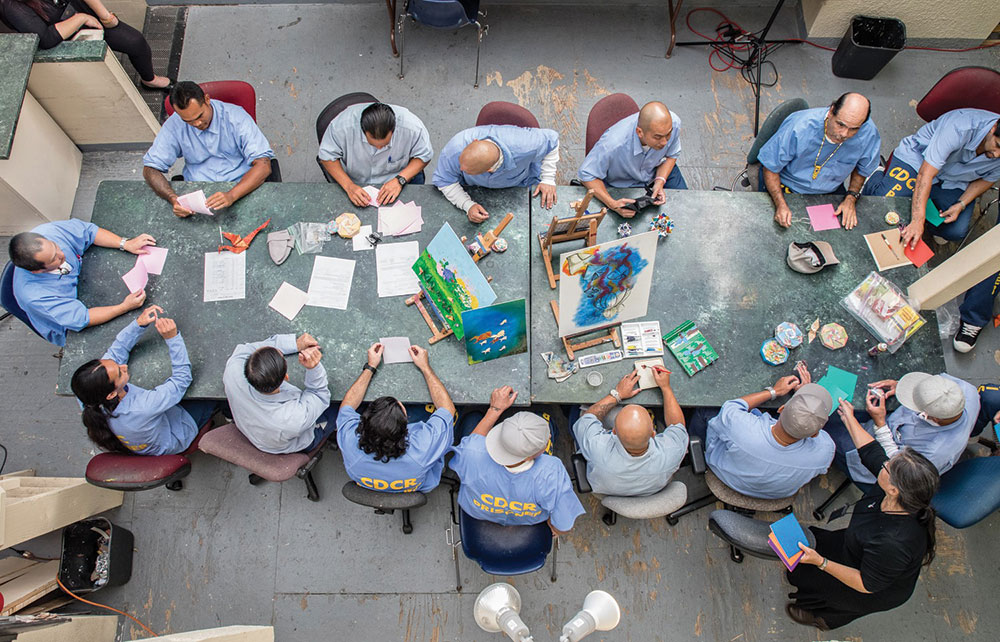Life inside San Quentin State Prison can be tedious, monotonous and dangerous. Most of all for long-term or lifetime inmates, it can be hopeless. Yet for incarcerated individuals who participate in the Arts in Corrections program, their outlook on the world is significantly affected.
“It was a little piece of heaven at the time,” says Henry Frank, a returned citizen who was incarcerated at San Quentin between 2003 and 2009. Discovering the program through an open studio event shortly after arriving at San Quentin, Frank took classes in everything from painting to book binding to his personal favorite, block printing, alongside fellow inmates of every race, creed, religion and background.
“It was a place where it just didn’t feel like prison in that room,” he says. “The people that were in there, we set our race to the side, or our religious beliefs, political beliefs, any animosity to the side—we were just artists in there. You weren’t a number. They called you by your name, which is rare inside.”
Founded in 1977 as the Prison Arts Project, Arts in Corrections was a statewide program under the Department of Corrections until 2010, when state funding ended. At that time, the program’s dedicated teachers, along with facilitators at the William James Association, revived the current Arts in Corrections program, now administered through the California Arts Council.
“Access to the arts can help a person find a talent and connection to others that they never knew existed,” writes Carol Newborg, program manager for San Quentin Arts in Corrections, in an email.
“It helps people change and grow, and often can open the door to education and other programs which help people to work very seriously on themselves, take accountability for their actions, and ultimately be able to return to society and give back,” she adds.
This month, the public is invited to see the art coming from the program in the exhibit, “Inside Insights: San Quentin Arts in Corrections,” on view at Marin Center’s Bartolini Gallery. Featuring a wine and cheese reception on Jan. 16, the exhibit showcases some hundred works, including original paintings, prints and sculptures by San Quentin inmates, as well as work from Arts in Corrections instructors, photographs by Peter Merts of inmates participating in classes, works by former San Quentin inmates like Frank, and more.
For Frank, the classes were a therapeutic experience that taught him skills like patience and being comfortable asking for help. “That was a huge thing for me,” he says.
Frank still makes art today, adding photography and collage to his repertoire. He’s also started his own business, Red Tail Art, that features Native American–inspired works that incorporate Yurok and Pomo designs.
For the show, Frank will be showing two pieces, one a fully functioning rattle sculpture in the shape and design of a yellowjacket; the other, an intricately detailed collage of several birds of prey.
“Arts in Corrections is not about just giving a person something to do; it’s about giving a person a chance at becoming a better person,” says Frank.
“Speaking for myself, and people I’ve spoken to, we had a chance to have our mind quieted, to enjoy the moment and visualize the peace that we want, which let me visualize what I want out of life and start moving towards that.”
‘Inside Insights: San Quentin Arts in Corrections,’ opens with a reception on Wednesday, Jan. 16, at Marin Center’s Bartolini Gallery, 10 Avenue of the Flags, San Rafael. 6pm. Free. marincounty.org.








